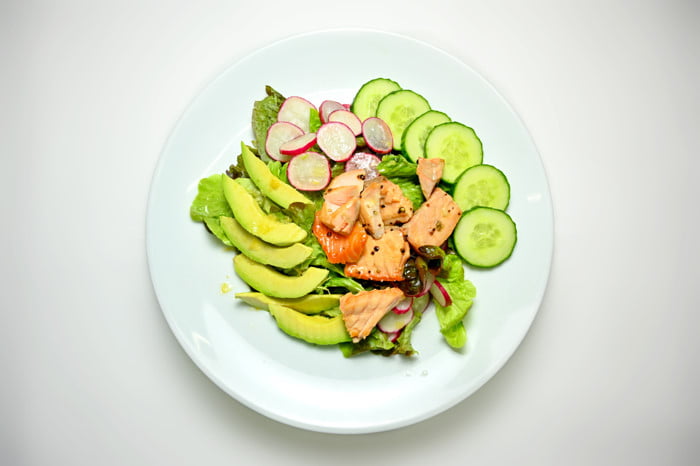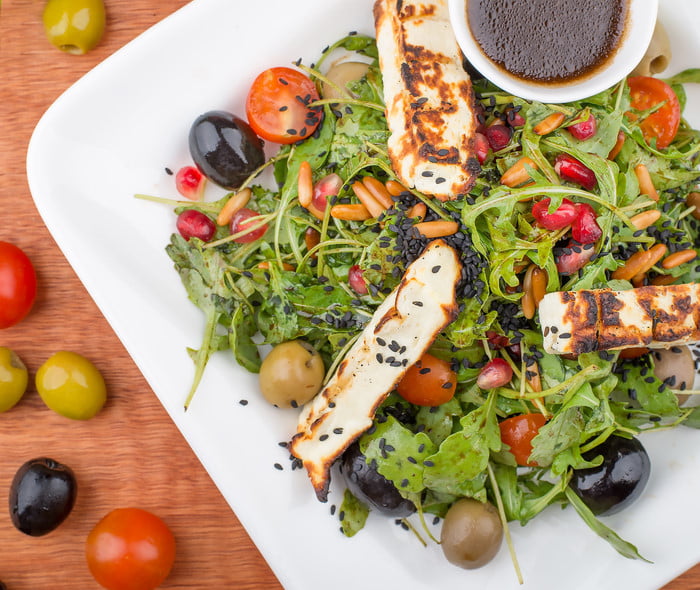As we age, it becomes increasingly important to prioritize our health and well-being. One way to do this is by incorporating nutrient-dense superfoods into our diets. These powerful foods provide essential vitamins, minerals, and antioxidants that support overall health and help combat age-related health issues. In this article, we’ll explore ten superfoods for seniors and discuss their benefits, along with tips for incorporating them into your daily meals.
- Leafy greens
Leafy greens such as spinach, kale, and Swiss chard are packed with vitamins, minerals, and antioxidants that support heart health, brain function, and healthy bones. They are high in fiber, which aids digestion and helps maintain a healthy weight.
How to incorporate: Add a handful of leafy greens to your salads, smoothies, or stir-fries. You can also sauté them with garlic and olive oil for a tasty side dish or add them to soups and stews.
- Berries
Berries, including blueberries, strawberries, raspberries, and blackberries, are rich in antioxidants called anthocyanins, which help reduce inflammation and protect cells from damage. These delicious fruits also provide essential vitamins and minerals, such as vitamin C and potassium.
How to incorporate: Enjoy berries as a snack, add them to your yogurt or oatmeal, or use them to make a nutritious smoothie. You can also incorporate berries into your baking, such as muffins and pancakes.
- Fatty fish
Fatty fish, like salmon, mackerel, and sardines, are rich in omega-3 fatty acids, which support brain health, reduce inflammation, and help maintain healthy cholesterol levels. They are also a good source of vitamin D and high-quality protein.
How to incorporate: Aim to include fatty fish in your meals at least twice a week. Try grilling, baking, or broiling fish for a healthy and delicious meal. You can also add canned sardines or salmon to salads, sandwiches, and pasta dishes.
- Nuts and seeds
Nuts and seeds, such as almonds, walnuts, flaxseeds, and chia seeds, are packed with healthy fats, fiber, and protein. They help support heart health, brain function, and provide essential nutrients like vitamin E, magnesium, and zinc.
How to incorporate: Enjoy a handful of nuts as a snack or add them to your yogurt, oatmeal, or salads. Incorporate seeds into your smoothies, or use them as a topping for toast or a bowl of fruit.
- Greek yogurt
Greek yogurt is an excellent source of protein, calcium, and probiotics, which support digestive health and strengthen the immune system. It is also lower in lactose than regular yogurt, making it a suitable option for those with lactose intolerance.
How to incorporate: Enjoy Greek yogurt as a snack, topped with fruit and nuts, or use it as a base for smoothies. You can also swap out sour cream or mayonnaise for Greek yogurt in recipes to create a healthier, protein-rich alternative.
- Sweet potatoes
Sweet potatoes are a nutrient-dense and delicious root vegetable, high in vitamins A and C, fiber, and potassium. These nutrients support eye health, digestion, and help maintain healthy blood pressure levels.
How to incorporate: Roast sweet potatoes in the oven, mash them for a creamy side dish, or add them to soups and stews. You can also make sweet potato fries by slicing them and baking them in the oven with a drizzle of olive oil and your favorite seasonings.
- Beans and legumes
Beans and legumes, such as lentils, chickpeas, and black beans, are an excellent source of plant-based protein, fiber, and essential nutrients like iron, magnesium, and folate. They help support heart health, digestion, and blood sugar regulation.
How to incorporate: Include beans and legumes in your meals by adding them to salads, soups, stews, and casseroles. You can also make homemade hummus or bean dips for a healthy and delicious snack.

- Avocado
Avocado is a nutrient-dense fruit packed with heart-healthy monounsaturated fats, fiber, and potassium. These nutrients help support heart health, brain function, and healthy blood pressure levels.
How to incorporate: Add avocado slices to your sandwiches, salads, or toast. You can also blend avocado into your smoothies for a creamy texture, or make a delicious guacamole for a nutritious snack or side dish.
- Dark chocolate
Dark chocolate, specifically with a cocoa content of 70% or higher, contains antioxidants called flavonoids, which help protect cells from damage, reduce inflammation, and support heart health. It is also a source of essential minerals like magnesium and iron.
How to incorporate: Enjoy a small piece of dark chocolate as a treat, or add cocoa powder to your smoothies, oatmeal, or baking for a healthy and delicious flavor boost.
- Turmeric
Turmeric is a powerful anti-inflammatory spice known for its active compound, curcumin. It has been shown to support brain health, joint health, and help alleviate symptoms of arthritis.
How to incorporate: Add turmeric to your soups, stews, or stir-fries, or make a warming turmeric tea by mixing turmeric powder with hot water and a touch of honey. You can also take turmeric supplements as recommended by your healthcare provider.
Incorporating nutrient-dense superfoods into your diet is an effective way to support overall health and well-being during your golden years. By including foods like leafy greens, berries, fatty fish, nuts and seeds, Greek yogurt, sweet potatoes, beans and legumes, avocado, dark chocolate, and turmeric in your meals, you can enjoy a diverse and delicious diet that provides essential nutrients to support your body as you age. Remember to consult your healthcare provider before making significant changes to your diet, especially if you have any existing health concerns or are on medication.











